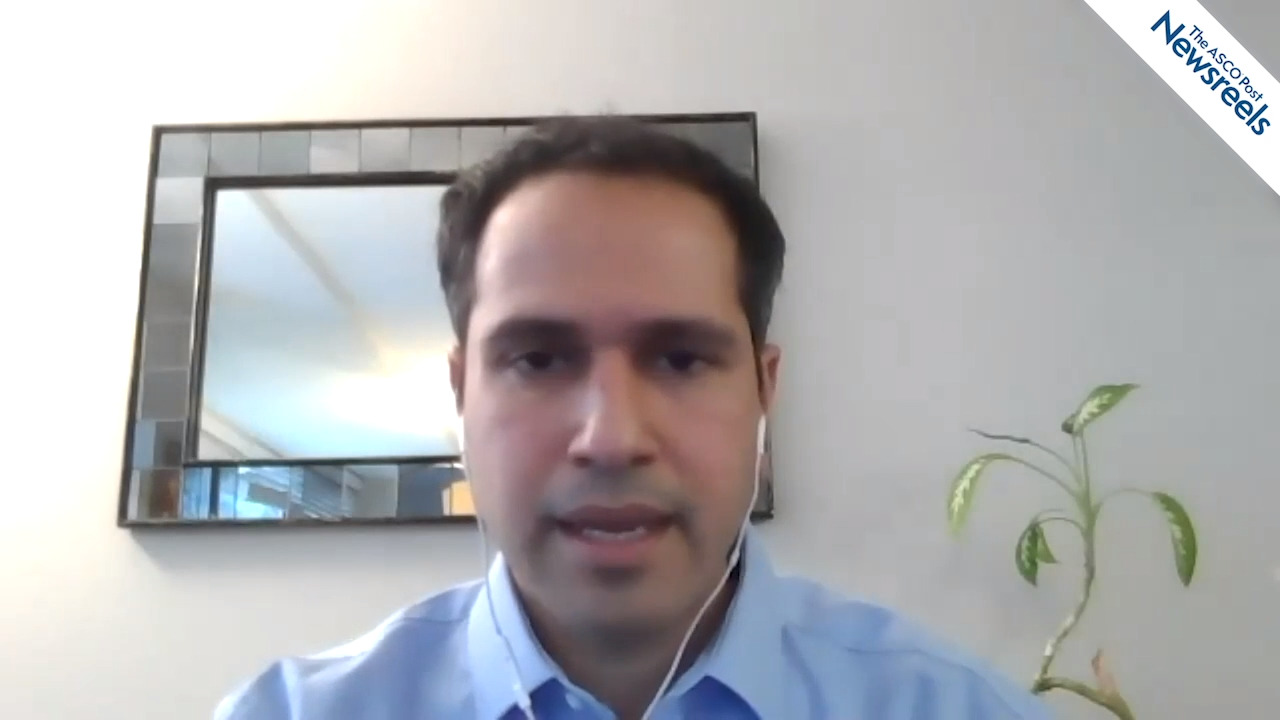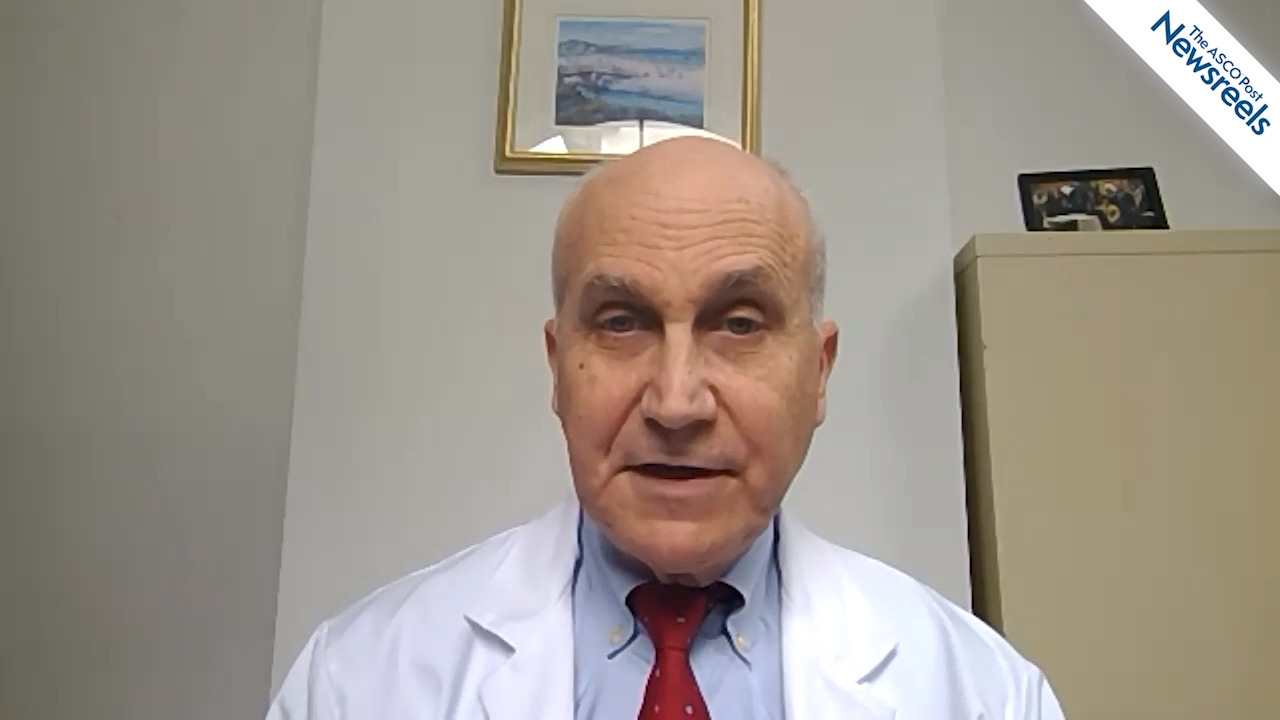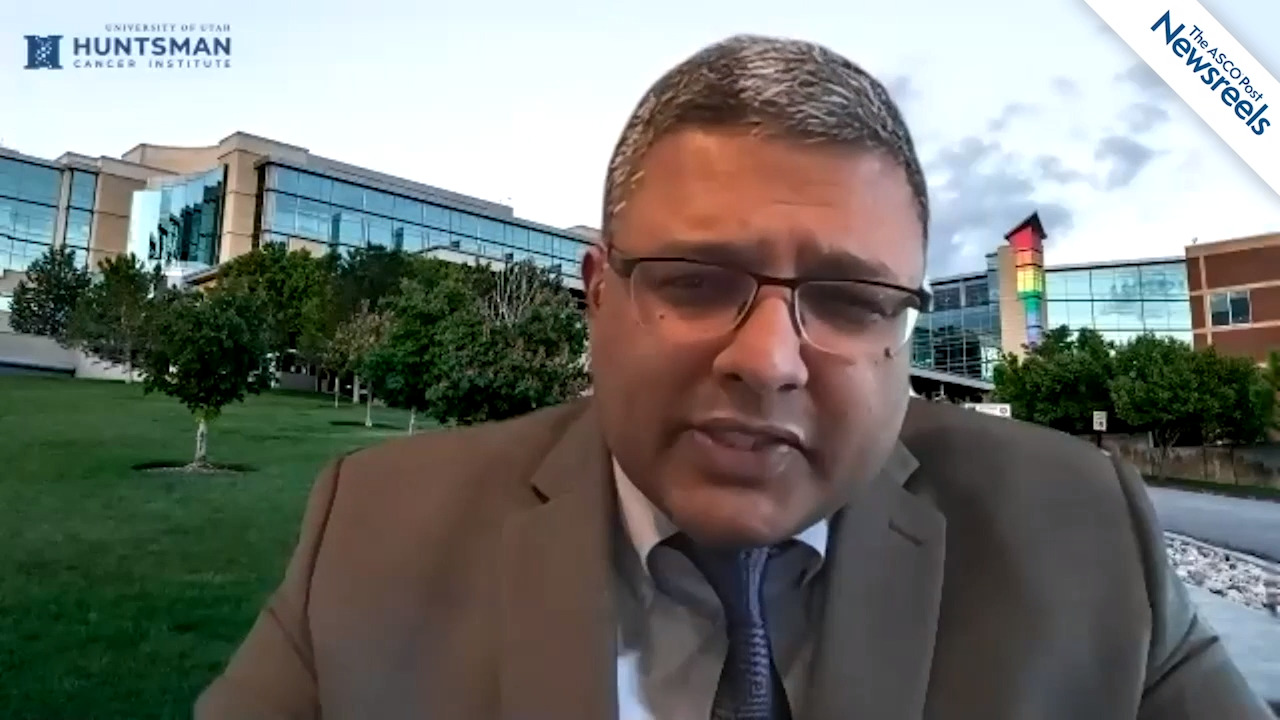Sandy Srinivas, MD, on Managing Metastatic Castration-Resistant Prostate Cancer
NCCN 2021 Virtual Annual Conference
Sandy Srinivas, MD, of Stanford Cancer Institute, discusses the increasing number of ways to deliver life-prolonging therapy to patients with advanced prostate cancer, including more accurate imaging techniques; PET tracers to help better detect, diagnose, and treat disease; PARP inhibitors for BRCA and other mutations; and new sequencing of drugs.
The ASCO Post Staff
Shivan J. Mehta, MD, MBA, of Abramson Cancer Center at the University of Pennsylvania, discusses how insights from behavioral economics could be harnessed to improve HPV vaccination rates, thus lowering the rate of cervical, genital, and head/neck cancers, all of which are linked to HPV.
The ASCO Post Staff
Arlene O. Siefker-Radtke, MD, of The University of Texas MD Anderson Cancer Center, discusses the changing therapeutic landscape in which atezolizumab, avelumab, and pembrolizumab have either been approved or are under review for treating urothelial bladder cancer in the metastatic, superficial, and adjuvant settings.
The ASCO Post Staff
David G. Pfister, MD, of Memorial Sloan Kettering Cancer Center, discusses the many considerations when caring for patients with head and neck cancers, such as dental and nutritional issues; side effects from radiation, including necrosis of the bone; oral health; problems with speech; and the concerns of younger patients who may have to cope with the sequelae of treatment such as altered function or disfigurement for years to come.
The ASCO Post Staff
Thomas K. Varghese, Jr, MD, of Huntsman Cancer Institute at the University of Utah, summarizes a panel discussion on how the COVID-19 pandemic has interrupted cancer screenings, when telemedicine works and when it doesn’t, opening alternative care sites in the community, and the emotional and mental toll the coronavirus has taken on health-care providers.
The ASCO Post Staff
Shaji K. Kumar, MD, of the Mayo Clinic Cancer Center, discusses the latest data on treating patients with multiple myeloma, including standard-of-care induction before stem cell transplant; the role of quadruplet induction; long-term results with the combination of daratumumab, lenalidomide, and dexamethasone in those who are ineligible for stem cell transplant; CAR T-cell engagers; and the need for more research on how immunotherapy fits in the sequence of treatments.





